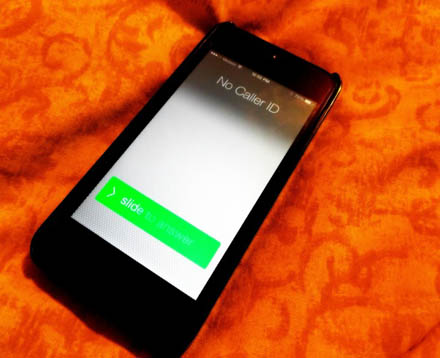I said, “Just trust your instincts. Just be aware. Maybe you will be wonderful for each other. I am just telling you what I wish someone would have told me four years ago.”
On our third date, he told me he struggled with addiction. It was a decades-long struggle, but he was in the Program, went to meetings, met with sponsors, and was full of gratitude for the richness of his life. His honesty and candor was endearing, brave, and intriguing.
I had grown up around alcoholism and addictive behaviors, so something stirred in me: Perhaps this would be a learning, growing opportunity. Maybe it would help me free my own long-marinating demons. Plus, he was brilliant, funny, owned his own business, and was oh-so-cute.
Early on in our journey, I began attending open 12-step meetings at his side. I remember, at the end of the first one, I told him, “I wished it didn’t end.” The raw, passionate discussions, the frank dialogues about simply getting through each day, were, well, intoxicating.
Six months into our love affair — as I did deeply love him — he relapsed. I had assumed this time would come, at some point, but had no idea what it would look like. What it looked like was, this guy who routinely left all the doors to his house open and answered phones and texts immediately, was locked up in his house, using.
It was a Sunday morning, and an AA meeting was supposed to be starting in his own living room. The members gathered on the lawn and asked me what was happening. Didn’t I have a key? I called every number, banged on the door. His car was in the garage. Had something unthinkable happened?

With four years hindsight, I am numbed and resigned to what locked doors signifies. It means save your breath and turn around. But that was my first time, and while some members left swiftly, a few of the women were concerned about his being non-responsive. So, they called the police. Several cars and a fire engine pulled up within minutes, and they brought out a stretcher. I started to shake and couldn’t breathe. They ascended the back stairs and broke the door when there was no response.
He was standing there, eyes wide, a towel wrapped around him, steam and smoke filling the apartment. “What’s wrong? What’s happening?” I sank to my knees.
There was nothing for police to find, although I suppose some of the officers had at least a hunch. They made sure he was stable and packed up all the life-saving medical supplies. After a brief discussion with him, he told me to get out, to get everyone out, and I drove to my dear friend’s home, where I broke down.
We didn’t break up then. Within a week he relapsed again. And then again. But it wasn’t a matter of showing up at a locked door each time. There were lunch plans he said “we never made,” movie plans he said, “were never solidified,” last-minute cancellations, and extended MIAs. His phone would buzz ominously with calls and texts in the middle of the night.
Routinely, I would find the strength to tell him, “I’m sorry you’re going through this, but I can’t live like this anymore.” And I would try to leave the relationship, but after a couple of days of his emailed apologies, frantic phone calls, and gifts on my doorstep (literally), he would remind me how much we loved each other, his renewed commitment to the Program, how he would cut off one or more appendages rather than lie to or hurt me again.
Years have gone by. I’ve been to various therapists, taken medications, attended Al-Anon, read everything I could find about addiction. For a short time, he started drinking (“If I drink, I won’t drug,” he said) — however, as an addict, there is no such thing as moderation, no off-switch. Drinking meant getting plastered and insisting he be the man and drive his car.
I confided in a few friends — including the ones who had introduced us originally, as they had no idea — because this was too much to bear all alone. Some said, “Find someone who will treat you right! Don’t keep putting yourself through this.”
But I loved him.
Some said, “I know you love him, just make sure you take care of yourself.”
Every therapist I saw — all of them — said that I would never come first for an addict. He might have good intentions, but the drug would always come first.
Sometimes there would be good months, filled with meetings and mindfulness and plans and hard work and dreams. There was true love and rainbows and unicorns and what felt like epic intimacy. And then… he proposed. And I wanted to believe in him, and us.
I accepted — with a caveat that a long stretch of change needed to happen first. We each have kids, and we have homes in neighboring towns, so it wasn’t like there was a rush to the altar. Which was a good thing — any semi-serious discussion of moving, picking a date, finding a venue, or other logistics seemed to be followed by days of locked doors.
In retrospect, I’d say the most harmful side effect of all of this was the assault on my peace of mind, my sanity. The turning tables, the insistence that I didn’t see what I know I saw, the belittling and minimizing and ridiculing when I tried to make headway in his ridiculously articulate arguments. I would try to make him grasp the toll on my well-being when he went missing for 14 hours and I couldn’t sleep, and he would instantly make that about my own family issues growing up (his art of deflection was masterful). The second-guessing spurred me to look for clues — I even resorted to peeking at his phone during the night to see how many dealers contacted him.
I broke up with him so frequently that our friends hardly knew if we were on or off on any given week. Because even when he said he totally understood my reasons for leaving, without fail he insisted I come back, launching the full courtship press whenever I tried to extricate myself. I’ve lost track of how many times I left the relationship, and how many times I agreed to try ONE last time.
This fall, he began one of the worst binges I’ve witnessed since knowing him. Of course, it was days before we were all to leave on a family trip across the country. As I’ve had to do with other events and excursions he relapsed just prior to — my cousin’s wedding, a spring break with the kids, birthday parties, holiday gatherings — I told him he was not welcome.
We’re not talking about taking a drink and feeling better in the morning. His binges altered his personality for weeks on end. He would be nasty, angry, and exhausted. No. He was not coming along. And this time, I knew it was the last trip I would be scurrying to change last minute. This was it.
Eight weeks later, he was still wavering between bursts of frantic pleading text messages and phone calls to paper-thinly veiled assaults on Facebook. My friends recommended I block him, but I knew that would fuel his anger (plus I wanted to keep an eye on what he was saying about me).
And then… he began posting pictures with a new would-be girlfriend. When Saturday came, he spent the day calling repeatedly until I answered, and then vowed his undying love for me. I held steady that it was over, and he cried that he could barely remember to breathe. We hung up, and within the hour, he had checked in on a dinner date with the new girl.
When our friends — originally, my friends, who have been spared the re-engineering of their psyches through his manipulations — started “Liking” his check-in and commenting on his date, I admit something snapped. It felt like a total betrayal. No, I didn’t want him. But why couldn’t anyone else see the truth? It was unfair, unjust, and seemingly unethical for me to watch as another woman took a number for this odyssey of the mind.
Would it be wrong to warn her — or more wrong to keep quiet? While no good can come from trying to interfere with the path of fate, the universe, what have you, aren’t there rules about sharing information that could ultimately protect others’ emotional safety? Shouldn’t there be a good Samaritan law for relationships?
This article discusses the pros and cons of warning the potential next victim of a psychopath. (And by psychopath here, we are referring to someone who never admits to being wrong, to doing wrong, to have wronged others; to cheat, lie, manipulate, and hurt others emotionally and physically while projecting blame onto them.)
If the warning is purely for vengeful means, there is no good to come from talking crap about him. But note this passage: “However, if you’re motivated by the other-regarding desire to warn the current victims for their sake–to help them avoid the pain you felt–regardless of whether they’re grateful for the information you gave them and regardless of the fact this will keep you at least indirectly associated with the psychopath and his current life, then it may be worth assuming the risks I enumerated above.”
Before you let the comments rip, let me tell you, I know I chose poorly. I was on the fence, wondering if it was inhumane to stand idly by while this woman sank into his green eyes, absorbing his half-truths. And then my phone buzzed. He was calling me from the men’s room, from the date, to tell me he loved me and that he wanted to ditch her and come over right now.
That’s when I totally lost it. I immediately sent her a Facebook message (I didn’t know her, but they had checked in). I simply stated that there were things she should be aware of, and if any time in the future she had questions, to please contact me.
While it may appear it was a simple act of sabotaging a budding relationship, I can tell you, it was not my end game. I was hurting, have been hurting, and it took four years for the charm and romantic gestures and promises to lose their glimmer in the shade of the lies and disappointments.
He of course got wind of my brief message to her, as she showed it to him at dinner. And after the date, she very kindly and maturely answered me. She was fair and direct and appreciated it, she said. I told her he struggled with crack addiction and has been in recovery for decades, however that fact was not the issue — what was hardest was the lies and the manipulations and mind games. That he downplayed its severity and minimized its impact on those who love him.
I said, “Just trust your instincts. Just be aware. Maybe you will be wonderful for each other. I am just telling you what I wish someone would have told me four years ago.”
There were no exaggerations. I wrote to her exactly as I would have wanted someone to advise me — although, who knows if I would have listened. I included plenty of apologies. I felt terrible sharing this news, but she said not to — that she appreciated the information, and wished me the best.
The next day, he got wind of the full text of that conversation. And I was mortified, humiliated. In the light of the afternoon, I saw it was the wrong choice. And apparently I came across as a jealous, crazy ex, rather than the guardian angel tone I was going for. And he was furious.
He said he was driving to my house and that i would get in the car with him or there would be dire consequences. Well, you don’t get in a car with someone who talks that way, so he chose punishment. He exposed my behavior with a Facebook rant, identifying me by name, while leaving out mention of his drug use, his history of lies, as well as my apologies. I was vilified and declared insane and evil. He then blocked me — a blessing, of course.
It’s been a while, and I’ve been able to reflect. We all have our lives to live and lessons to learn. If I were a different woman, I may have moved on after the first year of lies or the third disrupted plan or being woken up by a drug dealer’s text message.
This woman, and any and all that follow, may have their own lessons to learn. It’s not my place to skip chapters for her — I get that now. And I will never repeat this act. But here’s advice that bears repeating: Trust your judgement. Believe your intuition. If he’s continually locking the door, he will never let you in.






